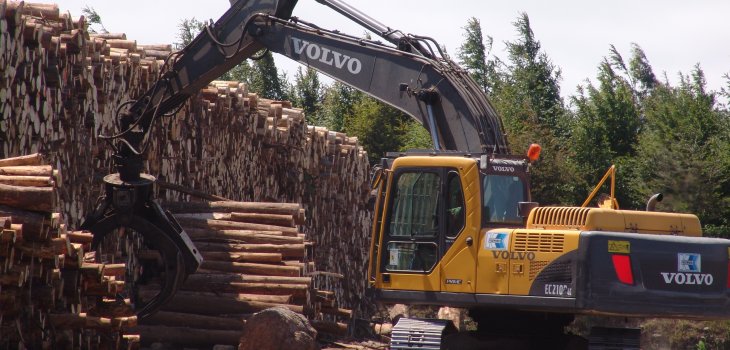As a summary, we can conclude that one of the greatest advances of 2022 is the consolidation of Futuro Madera (Future Wood). A union of associations, formed by the College of Forest Engineers, Aprobosque, AchBiom, PymeMad, Corma, and Acoforag, whose goal is to establish a shared vision of unity, collaborative work, and a sustainable future for the forestry sector while defining a long-term perspective. This proposal places wood at the center of the discourse, positioning it as the product capable of directly and indirectly improving the living conditions of millions of people inhabiting the diverse territories of south-central Chile.
Futuro Madera invites us to show the public that trees have a remarkable capacity—through socially and environmentally sustainable management—to provide quality of life, ecosystem services, clothing, paper, packaging and recyclable products, timber for construction, among other notable contributions.
Where there has been no progress is in the poor working conditions and persistent insecurity that forestry contractors and their workers must endure. As of November 30, 2022, we have suffered 102 attacks destroying machinery and work, 13 more than in 2021. A total of 387 pieces of equipment have been burned, 49 more than the previous year. All violence-related figures have increased this year, making it the most violent since 2014.
We must emphasize that the marked and ongoing violence in 2022 has led us to take two major actions as an association:
1.- Filing a collective lawsuit against the State of Chile for lack of services, emergent damages, moral harm, and lost profits. The lawsuit was presented in the second instance in the courts of Valdivia, and we await its resolution.
2.- Submitting a complaint to the International Labour Organization (ILO) for non-compliance with Convention No. 187, signed and ratified by Chile in 2011, since in the southern macro-zone, the right of forestry workers to carry out their duties in a safe and healthy work environment is being violated. The complaint was accepted for processing, and according to deadlines, the State of Chile has already been notified.
Nine years ago, in December 2013, alongside 19 forestry contractors, we proposed that associativity should be the key to better managing relations with authorities, primary companies, and public opinion, so that in an organized and united manner, we could seek recognition for the contribution we, as forestry contractors, make to the progress and development of the southern regions of the country.
Over these nine years, we have made a great effort—contractors and forestry workers alike—but violence has engulfed us and prevents us from restarting and regaining our path. We believe the State of Chile must make an additional effort, step out of its ideological bubble, and understand that the forestry sector is strategic in a world that demands wood and carbon credits, that its contribution is relevant to the country's development and its people, and that progress is possible with everyone included.
We hope and maintain the belief, as always, that next year we will find the answers we are searching for. It is urgent and necessary—we want and need to work for a better country.







Comments (0)
No comments yet. Be the first to comment!
Leave a comment